
This gallery contains 14 photos.
DIY Stations of the Cross this Lent with images from the public domain Continue reading


This gallery contains 14 photos.
DIY Stations of the Cross this Lent with images from the public domain Continue reading
As more and more of us worship from home, we are most of us establishing a new discipline. We are loving our neighbor by sacrificing the easy, rhythmic habit of gathering together.
Today’s poem is a reminder that we are the church, worshipping a God who is everywhere present, and “Whose only now is forever.” Whenever we come before God in worship, and however we come before God in worship, we do so along with all the saints everywhere and throughout all of time.
It also plays nicely with this Sunday’s lectionary readings, so I’ll be reading it as our call to worship tomorrow, as I lead worship online for the first time. May it call you into “the deathless truth of [God’s] presence.”
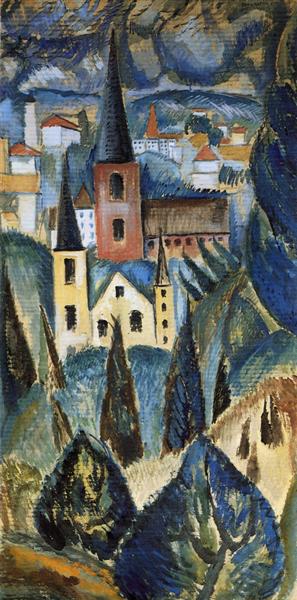
Landscape with Church Spires and Trees by Max Weber
i am a little church(no great cathedral) – i do not worry if briefer days grow briefest,
i am not sorry when sun and rain make aprilmy life is the life of the reaper and the sower;
my prayers are prayers of earth’s own clumsily striving (finding and losing and laughing and crying)children whose any sadness or joy is my grief or my gladnessaround me surges a miracle of unceasing
birth and glory and death and resurrection:
over my sleeping self float flaming symbols
of hope, and i wake to a perfect patience of mountainsi am a little church(far from the frantic
world with its rapture and anguish)at peace with nature – i do not worry if longer nights grow longest;
i am not sorry when silence becomes singingwinter by spring, i lift my diminutive spire to
merciful Him Whose only now is forever:
standing erect in the deathless truth of His presence (welcoming humbly His light and proudly His darkness)— e.e. cummings
This week’s lectionary readings play with the conceit of the rock that Moses struck to provide the newly liberated Israelites with fresh “living” water. “Strike the rock,” God says, “and water will come out of it, so that the people may drink.” Moses did so, in the sight of the elders of Israel. He called the place Massah and Meribah, because the Israelites quarreled and tested the LORD, saying, “Is the LORD among us or not?” (Exodus 17:6b-7)
“Is the LORD among us or not?” seems like a perfectly reasonable and non-rhetorical question. Some questions are mysteries to sit with and ponder, invitations to meditation, but this is the kind of question that demands an answer. It’s one that God answers when asked, even when the answer isn’t what the people expected. It’s one that Jesus answers even when he’s not asked. God wants us to know joy in “the rock of our salvation” (Psalm 95:1), and hope “because God’s love has been poured into our hearts” (Romans 5:5), and then to pass on this knowledge. Jesus tells the woman at the well that if she “knew the gift of God” she would have approached him asking for a drink, instead of the other way around (John 4:10). He tells her that this living water will become in those that drink it “a spring of water gushing up to eternal life” (John 4:14). Then he tells her everything she’s ever done and who he is, and she tells everyone else.
She and they and we become springs fed by the source: the rock that was struck.
In uncertain times, Gwendolyn Brooks names our desire to just be told what to do to so that everything will be okay. At first the answers given seem equally simplistic. Wear your boots [read: wash your hands!] and you won’t get sick! But then at some point — I’m not sure which point; I imagine it’s subjective by design — the simplistic answers seem to acquire a simple wisdom and move from the immediate to the important, from the actionable to the true and actual.
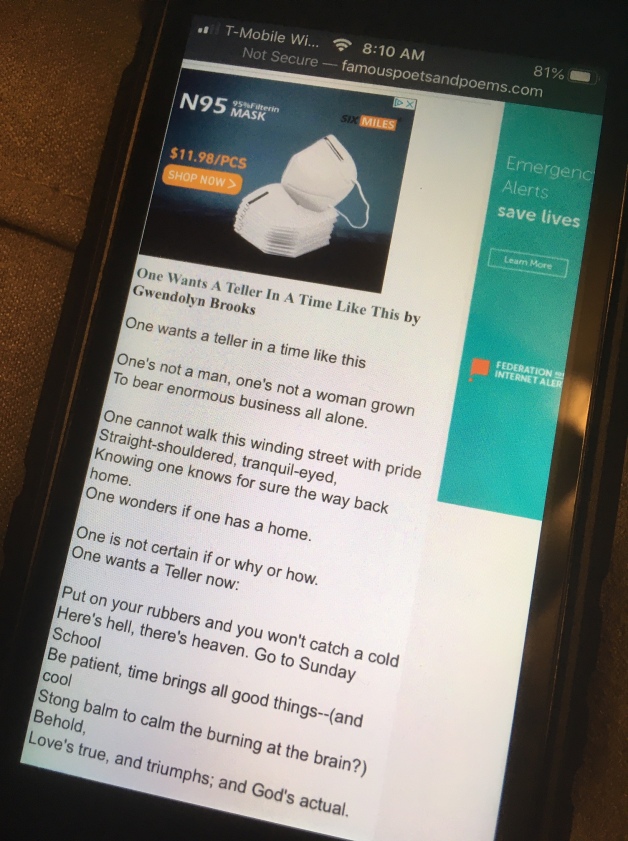
“One Wants a Teller in a Time Like This” by Gwendolyn Brooks – photo by Jenn Cavanaugh
[I couldn’t help but notice that not even the famous poets and poems are secure]
Lent is a time devoted to walking with Jesus to the cross. It is life on the way, on the road, and not always on the straightest path. The journey includes the chance meetings, the unexpected stops, and the improvised detours. Just because you know where you’re going doesn’t mean you know how you’ll get there.
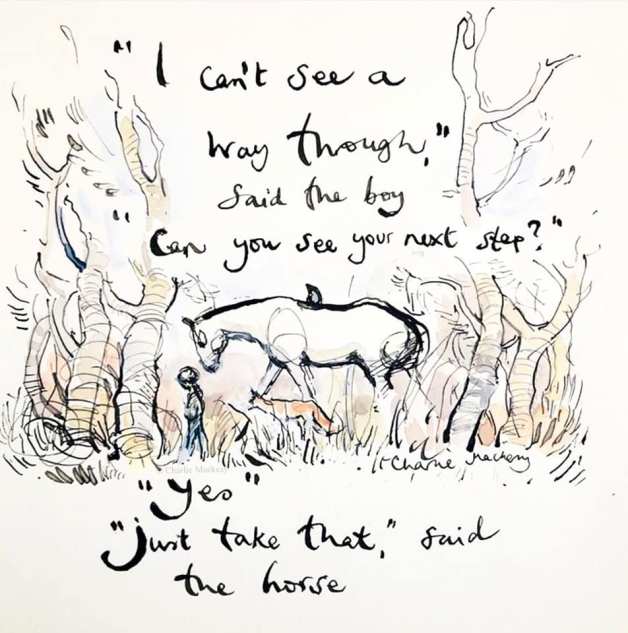
by Charlie Mackesy
The traveler gives up certain comforts and learns to appreciate others. What are you gaining space for as you leave some things behind?
Perspective is a powerful thing. How is yours changing?
“Mountains have long been a geography for pilgrimage…. Viewing a mountain at a distance or walking around its body we can see its shape, know its profile, survey its surrounds. The closer you come to the mountain the more it disappears, the mountain begins to lose its shape as you near it, its body begins to spread out over the landscape losing itself to itself. On climbing the mountain the mountain continues to vanish. It vanishes in the detail of each step, its crown is buried in space, its body is buried in the breath.” – Joan Halifax
Sit with your uncertainties for a bit. Name them. Acknowledge them. Accept that most of them will still be with you tomorrow and that, in most cases, feeling certain or uncertain about a thing will not significantly affect what tomorrow actually has in store. Pick one concern that could benefit from attention and attend to it: research, seek advice, talk it through with a friend, journal your thoughts, listen, pray…
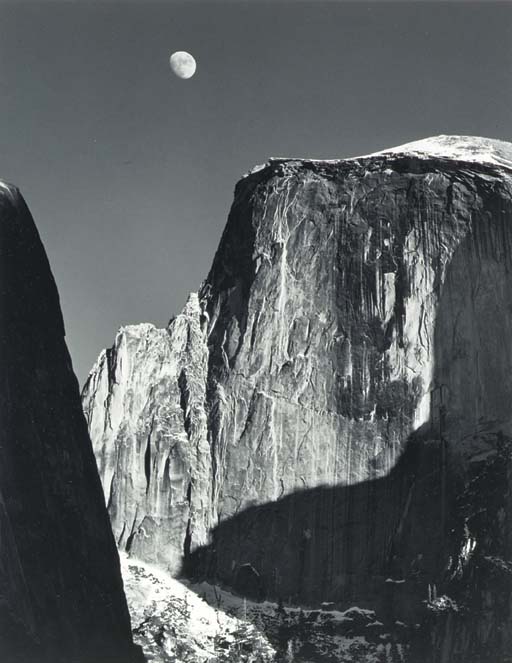
“Moon over Half Dome” – Ansel Adams
Lent: X
O, teach me to untangle hope
from hope that’s false,
and lead me farther down the winding path
and whatever elseyou think I need, because the angle
of the woven slope
of love and grief is steep. Unless the bind
is by design.— Maurice Manning
Every hour of every day there are crucifixions,

Justice Scales by Emory Douglas
the Christ on trial in someone, somewhere,
judged in fear, condemned in ignorance,
mocked and beaten, imprisoned, killed,
while we watch at the foot of the cross
or from three cock crows away, and ask,
‘God, God, why have you forsaken them?’
The world is full of Good Fridays and Golgothas.
In the small arena of our lives,
there appears to be the same defeat of goodness
and it’s difficult to wear a bright smile
when the heart hangs heavy in a darkness
full of thorns and nails and swords.
Unable to see beyond dyings, we cry,
‘God, God, why have you forsaken us?’
from ‘Easterings’ by Joy Cowley
Justice requires attention and presence. Injustice demands we look or walk away. We sense this when we witness it — if God were only here, we think, this would never happen. Pray for somewhere that seems God-forsaken. Keep your eyes open for ways to shine God’s light in and on dark places.
Why and how to reckon with the things on our conscience?

Candy Chang’s traveling project invited people to post anonymous confessions as an opportunity for “catharsis and consolation” http://candychang.com/work/confessions/
To whom and to what end do we confess?
What do we gain and what does it cost us to accept a confession?
What do any of us do with it once it is out there?
It is at once a comfort and a challenge to remember how much we all stand in the need of grace.
Late Results
We wanted to confess our sins but there were no takers.
—Milosz
And the few willing to listen demanded that we confess on television.So we kept our sins to ourselves, and they became less troubling.The halt and the lame arranged to have their hips replaced.Lepers coated their sores with a neutral foundation, avoided strong light.The hungry ate at grand buffets and grew huge, though they remained hungry.Prisoners became indistinguishable from the few who visited them.Widows remarried and became strangers to their kin.The orphans finally grew up and learned to fend for themselves.Even the prophets suspected they were mad, and kept their mouths shut.Only the poor—who are with us always—only they continued in the hope.— Scott Cairns
“So, you’re a background singer in your own life?
Why’re you in the background?
…
You gotta let the lies go
and let your hope grow.”

Face (Claude) – Henri Matisse
I find a lot of hope in being unfinished — a work in progress. When things aren’t working out as planned, well, the story isn’t over yet. It helps me extend grace to others, but especially myself — there’s less pressure to be perfect or have it all figured out.
Sometimes I have to ask myself, though, why is that part of my life or myself so underdeveloped? Why is it just roughed in? A sketch I’m in no hurry to finish? What fears and lies are keeping me from committing the time and focus it would take to fill in the features? It’s safer to be all potential, even if that means squandering it, but God has hopes, dreams, plans, and work for our completed selves. What is one step toward that future self you’ve been avoiding for fear of mistakes? What if we accepted the possibility of imperfection along the way to being made perfect?
Make no mistake: loss is not a gift. What was lost was a gift, sometimes one that wasn’t appreciated fully until it was lost, which only adds to the anguish.
Every loss is unique to the mourner, and yet the experience of loss is an inevitable part of life in this world.
Lent is a season to acknowledge it as real, to allow grief and regret to wrack us and ultimately, hopefully, to grow in appreciation for all we have been given, whether we still possess it or not. Loss leads easily to fear and defensiveness, but the recognition of the universality of loss can soften our hearts and make healers of the healed.
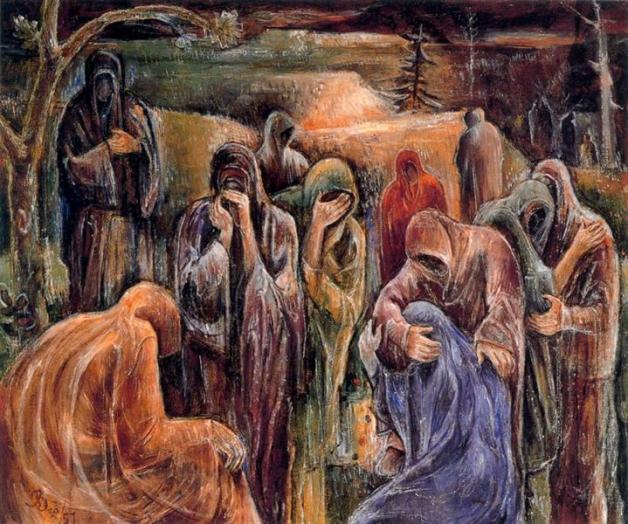
Kindness
Before you know what kindness really is
you must lose things,
feel the future dissolve in a moment
like salt in a weakened broth.
What you held in your hand,
what you counted and carefully saved,
all this must go so you know
how desolate the landscape can be
between the regions of kindness.
How you ride and ride
thinking the bus will never stop,
the passengers eating maize and chicken
will stare out the window forever.Before you learn the tender gravity of kindness
you must travel where the Indian in a white poncho
lies dead by the side of the road.
You must see how this could be you,
how he too was someone
who journeyed through the night with plans
and the simple breath that kept
him alive.Before you know kindness as
the deepest thing inside,
you must know sorrow as
the other deepest thing.
You must wake up with sorrow.
You must speak to it till your voice
catches the thread of all sorrows
and you see the size of the cloth.
Then it is only kindness that
makes sense anymore,
only kindness that ties your shoes
and sends you out into the day
to gaze at bread,
only kindness that raises its head
from the crowd of the world to say
It is I you have been looking for,
and then goes with you
everywhere
like a shadow or a friend.— Naomi Shihab Nye
Lent comes from the same root as lengthen — as the days are lengthening, as this active fast calls for the lengthening of our souls, the feeding of the hungry and care for others.
If you extend your soul to the hungry
And satisfy the afflicted soul,
Then your light shall dawn in the darkness,
And your darkness shall be as the noonday.
The Lord will guide you continually,
And satisfy your soul in drought,
And strengthen your bones;
You shall be like a watered garden,
And like a spring of water, whose waters do not fail.
Those from among you
Shall build the old waste places;
You shall raise up the foundations of many generations;
And you shall be called the Repairer of the Breach,
The Restorer of Streets to Dwell In.— Isaiah 58:10-12
Lent is not about nesting. The nest is made, the eggs have hatched, the child is born, and all these hungry mouths need fed. The focus of this fast is not to eat less, but to “share your bread with the hungry” (Isaiah 58:7). At this time of year, many of us think about how to make do with less, but how will you physically direct the surplus of resources that frees up to those in need?
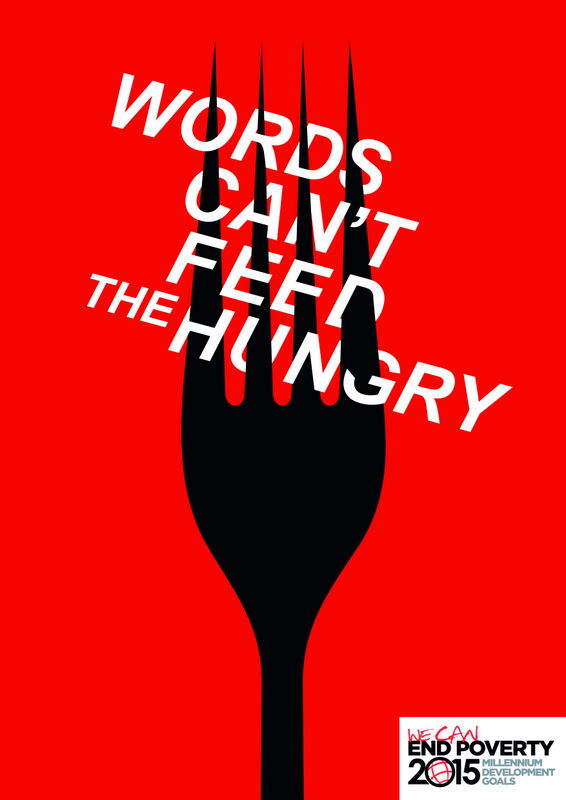
art by Michal Pawlicki
Rather than developing a scarcity mentality, how will you extend yourself to others to demonstrate to them — and yourself — that there is enough?